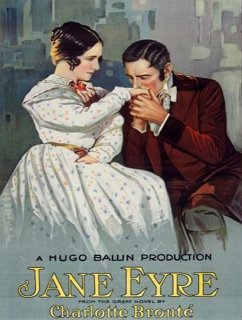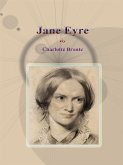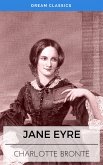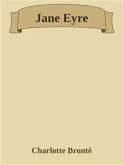Preface
I have omitted the preface to the first edition of "Jane Eyre" as it was unnecessary: This second edition requires a few words for both acknowledgements and various explanations.
My acknowledgements will be three-quarters of the way through.
To the public, for the indulgent ear, it inclines to a plain tale with few pretensions.
According to the press, for the fair field, honest suffrage was opened to an obscure candidate.
To my publishers, their subtlety, energy, practical insight and open liberality have helped an unknown and ill-advised author.
The press and the public are to me nothing more than vague personifications, and I must thank them in vague terms; but my publishers are certain: Some generous critics, who have encouraged me only as men of big heart and high opinion, also know how to encourage a struggling outsider; to them, that is to say, to my Publishers and distinguished Reviewers, I sincerely say, Gentlemen, I thank you from my heart.
Having acknowledged what I owe to those who have helped and approved me, I turn to another class; a small one, so far as I know, but therefore not to be overlooked. I mean the timid or affectionate minority who are sceptical of the tendency of such books as "Jane Eyre:" whose ears, at every protest against bigotry, detect in it - that parent of offence - an insult to piety, to God's regent on earth. To such sceptics I would suggest some obvious distinctions; I would remind them of some simple truths.
Conventionalism is not morality. Self-righteousness is not religion. Attacking the former is not attacking the latter. Ripping the mask from the face of the Pharisee is not raising a cruel hand against the Crown of Thorns.
These things and actions are diametrically opposed: they are as different from virtue as vice is from virtue. Men confound them too often: they must not be bewildered: appearance must not be confused with reality; narrow doctrines of men, which tend to exalt and magnify only a few, must not be substituted for the world-saving faith of Christ. I repeat - there is a difference; and to mark the line of separation between them broadly and clearly is not a bad but a good action.
The world may not want to see these ideas diverging, because it has become accustomed to blending them; to find it convenient to let the external show pass at sterling value, to let whitewashed walls vouch for clean temples. He may hate him who dares to penetrate the tomb and examine and expose it to reveal the charcoal remains - filing away the gilding and showing the base metal beneath - but to hate it as he wishes, he owes it to him.
Ahab did not love Micaiah, for he prophesied of her never good, but evil; probably he liked the sycophant son of Chenaanah better; yet Ahab might have escaped a bloody death, had he stopped to flatter and opened his ears to faithful counsel.
I have omitted the preface to the first edition of "Jane Eyre" as it was unnecessary: This second edition requires a few words for both acknowledgements and various explanations.
My acknowledgements will be three-quarters of the way through.
To the public, for the indulgent ear, it inclines to a plain tale with few pretensions.
According to the press, for the fair field, honest suffrage was opened to an obscure candidate.
To my publishers, their subtlety, energy, practical insight and open liberality have helped an unknown and ill-advised author.
The press and the public are to me nothing more than vague personifications, and I must thank them in vague terms; but my publishers are certain: Some generous critics, who have encouraged me only as men of big heart and high opinion, also know how to encourage a struggling outsider; to them, that is to say, to my Publishers and distinguished Reviewers, I sincerely say, Gentlemen, I thank you from my heart.
Having acknowledged what I owe to those who have helped and approved me, I turn to another class; a small one, so far as I know, but therefore not to be overlooked. I mean the timid or affectionate minority who are sceptical of the tendency of such books as "Jane Eyre:" whose ears, at every protest against bigotry, detect in it - that parent of offence - an insult to piety, to God's regent on earth. To such sceptics I would suggest some obvious distinctions; I would remind them of some simple truths.
Conventionalism is not morality. Self-righteousness is not religion. Attacking the former is not attacking the latter. Ripping the mask from the face of the Pharisee is not raising a cruel hand against the Crown of Thorns.
These things and actions are diametrically opposed: they are as different from virtue as vice is from virtue. Men confound them too often: they must not be bewildered: appearance must not be confused with reality; narrow doctrines of men, which tend to exalt and magnify only a few, must not be substituted for the world-saving faith of Christ. I repeat - there is a difference; and to mark the line of separation between them broadly and clearly is not a bad but a good action.
The world may not want to see these ideas diverging, because it has become accustomed to blending them; to find it convenient to let the external show pass at sterling value, to let whitewashed walls vouch for clean temples. He may hate him who dares to penetrate the tomb and examine and expose it to reveal the charcoal remains - filing away the gilding and showing the base metal beneath - but to hate it as he wishes, he owes it to him.
Ahab did not love Micaiah, for he prophesied of her never good, but evil; probably he liked the sycophant son of Chenaanah better; yet Ahab might have escaped a bloody death, had he stopped to flatter and opened his ears to faithful counsel.









